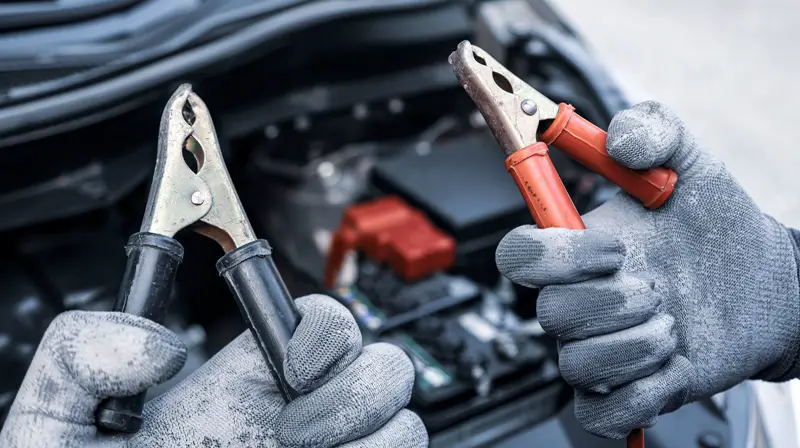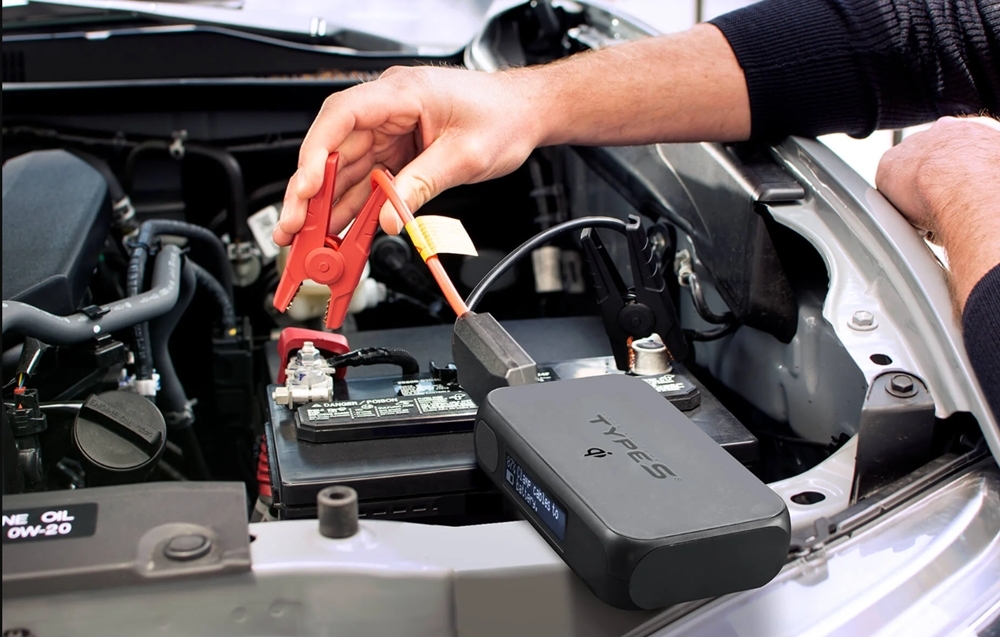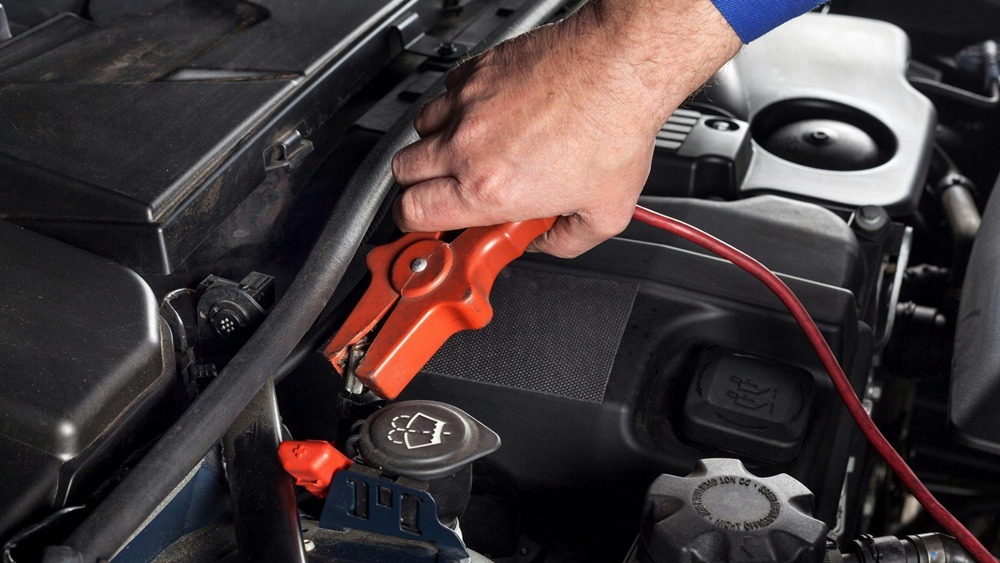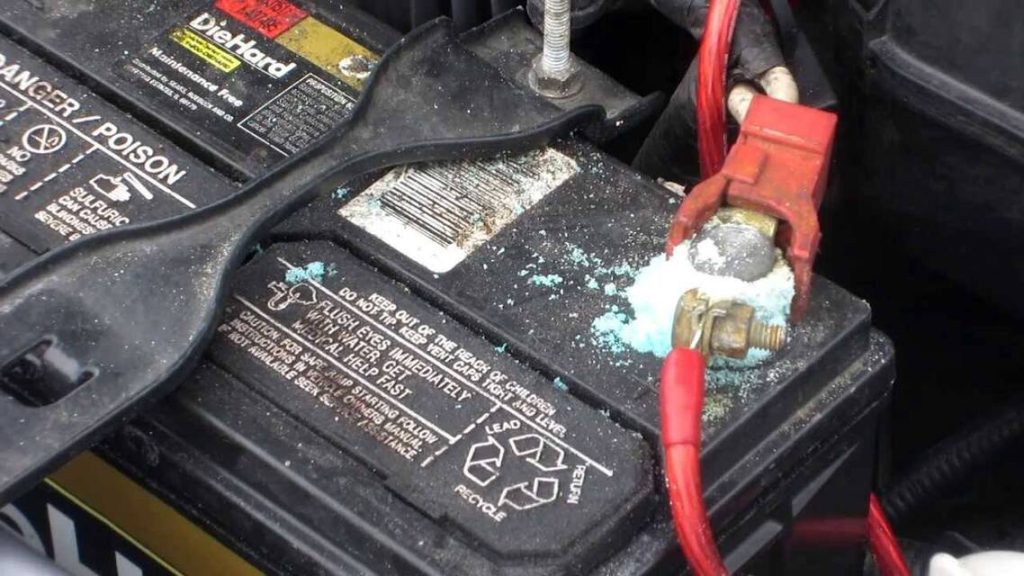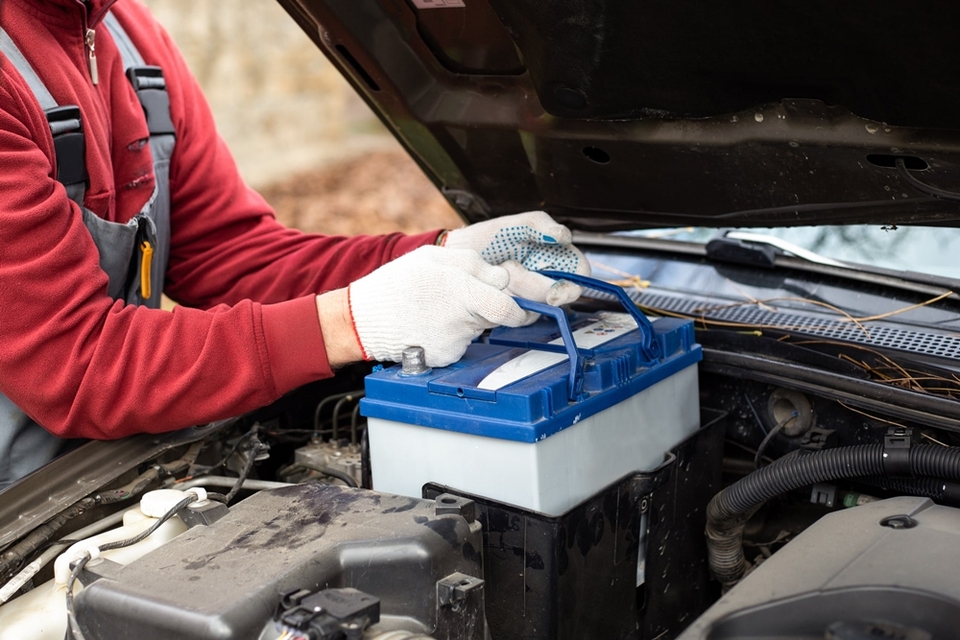Picture this: You’re rushing to an important meeting, coffee in hand, ready to conquer the day. You turn the key and… click. Nothing. Your car battery dying overnight has just turned your morning into a nightmare. Sound familiar? You’re definitely not alone in this frustrating experience!
Also read: How Long Does a Car Battery Last? 7 Critical Signs You’re About to Get Stranded
Every year, millions of drivers face the dreaded dead battery scenario. But here’s the thing – your car battery dying overnight isn’t just bad luck. There are specific, identifiable reasons why this happens, and more importantly, there are ways to prevent it from ruining your day again.

In this comprehensive guide, we’ll dive deep into the seven most common culprits behind overnight battery drain, explore practical solutions, and arm you with the knowledge to keep your vehicle reliable. Whether you’re dealing with parasitic drain, extreme weather conditions, or aging battery components, we’ve got you covered.
Table of Contents
Understanding Your Car’s Electrical System
Before we jump into the specific reasons for your car battery dying overnight, let’s get familiar with how your vehicle’s electrical system actually works. Think of your car battery as the heart of your electrical system – it stores energy and pumps power to various components even when your engine isn’t running.
Your alternator acts like a generator, recharging the battery while you drive. But here’s where things get interesting: even when your car is parked and “off,” certain systems continue drawing power. Your car’s computer modules, security system, radio memory, and clock all need a small amount of electricity to function properly.
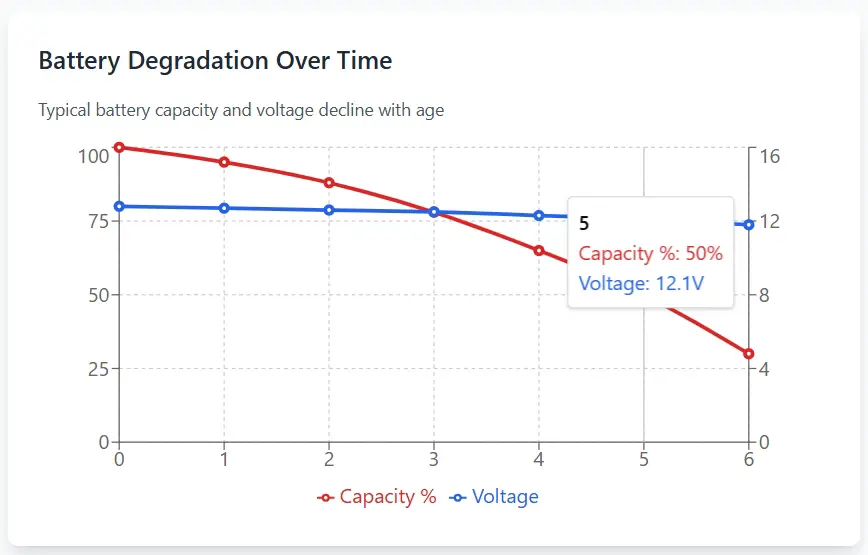
This normal power consumption is called “key-off draw” or “dark current,” and it typically ranges from 20 to 50 milliamps. However, when something goes wrong with this delicate balance, you end up with excessive battery drain that can leave you stranded.
The automotive electrical system has become increasingly complex over the years. Modern vehicles have dozens of electronic control units (ECUs) that manage everything from engine performance to infotainment systems. Each of these components has the potential to cause problems if they malfunction or fail to enter sleep mode properly.
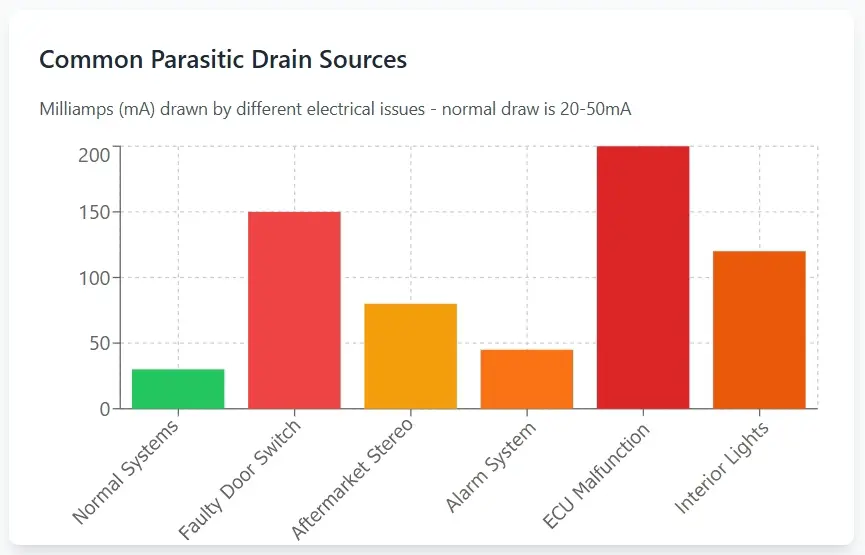
The 7 Main Culprits Behind Car Battery Dying Overnight
1. Parasitic Electrical Drain – The Silent Battery Killer
Parasitic drain is hands down the most common cause of car battery dying overnight. This occurs when electrical components continue drawing power after you’ve turned off your vehicle. While some parasitic draw is normal, excessive drain can completely deplete your battery in just a few hours.
Common sources of parasitic drain include malfunctioning door switches that keep interior lights on, aftermarket accessories that weren’t properly installed, faulty alternators that continue charging unnecessarily, and electronic modules that refuse to go into sleep mode. The tricky part? You might not even notice these issues during the day because your alternator compensates for the extra power draw while driving.
To diagnose parasitic drain, you’ll need a digital multimeter and some patience. The process involves disconnecting your battery’s negative terminal and measuring the current draw between the cable and battery post. If you’re seeing more than 50 milliamps after your car has been sitting for at least an hour, you’ve got a problem.
2. Extreme Weather Conditions
Weather plays a huge role in battery performance, and I’m not just talking about obvious situations like leaving your headlights on during a snowstorm. Both hot and cold temperatures can significantly impact your battery’s capacity and ability to hold a charge overnight.
In freezing temperatures, your battery’s chemical reactions slow down dramatically. A battery that’s operating at 100% capacity in 80°F weather might only deliver 20% of its power when temperatures drop to 0°F. This reduction in capacity, combined with your engine’s increased power demands for cold starts, creates the perfect storm for a car battery dying overnight — especially in winter.
Hot weather isn’t much better for your battery’s longevity. Excessive heat accelerates the chemical reactions inside your battery, causing the electrolyte to evaporate and the internal components to corrode faster. While your battery might work fine during hot days, the cumulative damage from heat exposure can result in a car battery dying overnight without warning.
The solution? If you live in an area with extreme temperatures, consider investing in a battery with a higher cold cranking amps (CCA) rating or a battery heater for winter conditions. During summer months, parking in shaded areas and ensuring proper ventilation around your battery can help extend its life.
3. Aging Battery Components and Internal Failures
Let’s face it – car batteries don’t last forever. Most automotive batteries have a lifespan of three to five years, depending on usage patterns, climate conditions, and maintenance practices. As your battery ages, its internal components begin to deteriorate, leading to reduced capacity and increased susceptibility to a car battery dying overnight.
One of the most common internal failures is cell damage. Your car battery contains six cells, each producing approximately 2.1 volts. When one or more cells fail, your battery’s voltage drops significantly, and it may not have enough power to start your engine after sitting overnight. This type of failure often happens suddenly, which is why your battery might work fine one day and be completely dead the next — a classic car battery dying overnight scenario.
Sulfation is another age-related issue that contributes to battery failure. Over time, lead sulfate crystals build up on your battery’s plates, reducing its ability to hold and deliver charge. While some sulfation is reversible through proper charging techniques, advanced sulfation typically requires battery replacement.
Regular battery testing can help you identify aging issues before they leave you stranded. Most auto parts stores offer free battery testing, and it’s worth checking your battery’s condition annually, especially if it’s more than three years old.
4. Faulty Charging System Components
Your car’s charging system does more than just keep your battery topped off while driving – it also ensures your battery maintains proper voltage levels when the engine is off. When charging system components fail, you might experience a car battery dying overnight, even with a relatively new battery.
The alternator is the most obvious component to check, but it’s not the only potential culprit. A faulty voltage regulator can cause overcharging or undercharging, both of which can lead to battery failure. Worn serpentine belts can prevent your alternator from spinning at proper speeds, reducing its charging efficiency — a common cause behind a car battery dying overnight that often gets overlooked.
Here’s something many people don’t realize: a failing alternator doesn’t always show obvious symptoms during driving. You might have enough power for normal operation, but if your alternator isn’t fully charging your battery, you’ll notice the effects after your car sits overnight.
Testing your charging system requires checking voltage at idle and at higher RPMs. A healthy charging system should produce between 13.7 and 14.7 volts at idle with all accessories off. If you’re seeing lower voltages, your charging system needs attention.
5. Corroded or Loose Battery Connections
Sometimes the simplest explanations are the correct ones. Corroded or loose battery terminals can create resistance in your electrical system, preventing your battery from receiving a full charge and contributing to a car battery dying overnight — especially if the issue goes unnoticed.
Battery corrosion appears as a white, blue, or green powdery substance around your battery terminals. This corrosion creates resistance, which reduces the efficiency of your charging system and can cause voltage drops that affect sensitive electronic components. In severe cases, corrosion can completely interrupt the electrical connection and trigger a car battery dying overnight scenario.
Loose battery terminals create similar problems. Even if your connections look clean, loose terminals can cause intermittent electrical issues and prevent proper charging. The vibration from normal driving can gradually loosen battery connections over time.
Cleaning battery terminals is a straightforward maintenance task that can prevent many car battery dying overnight scenarios. Use a mixture of baking soda and water to neutralize acid corrosion, then apply petroleum jelly or battery terminal protector to prevent future corrosion.
6. Aftermarket Accessories and Modifications
That cool aftermarket stereo system, alarm system, or remote starter might be the reason behind your car battery dying overnight. Many aftermarket accessories draw power continuously, even when your vehicle is off, and improper installation can create electrical drains that exceed your battery’s capacity.
Aftermarket alarm systems are particularly notorious for causing battery drain issues. While they’re designed to draw minimal power, older or malfunctioning alarm systems can draw excessive current. Similarly, aftermarket stereo systems with memory functions, amplifiers with constant power draws, and poorly installed LED lighting kits can all contribute to overnight battery drain.
The key issue with aftermarket accessories isn’t necessarily the accessories themselves, but rather how they’re installed. Proper installation includes using appropriate fuses, ensuring connections are secure, and connecting power draws to circuits that shut off with the ignition. Unfortunately, not all installers follow these best practices.
If you suspect aftermarket accessories are causing your car battery dying overnight, try disconnecting them temporarily to see if the problem resolves. Professional installation and regular electrical system checks can help prevent these issues.
7. Old or Inappropriate Battery Size
Using the wrong battery for your vehicle or continuing to use an undersized battery can definitely cause overnight charging issues. Your car’s electrical system is designed around specific battery capacity requirements, and using a battery with insufficient amp-hour capacity can lead to premature discharge.
Battery group size refers to the physical dimensions and terminal configuration, while capacity ratings like amp-hours (Ah) and cold cranking amps (CCA) determine how much power your battery can store and deliver. Using a battery with lower specifications than recommended can result in insufficient power reserves for overnight electrical draws.
Additionally, batteries lose capacity as they age. A three-year-old battery might only have 70-80% of its original capacity, which could be insufficient for your vehicle’s electrical demands. This gradual capacity loss often goes unnoticed until you experience your first car battery dying overnight incident.
Checking your owner’s manual or consulting with a professional can help ensure you’re using the appropriate battery specifications for your vehicle. Upgrading to a higher-capacity battery can provide additional peace of mind, especially if you have aftermarket accessories or live in extreme climate conditions.
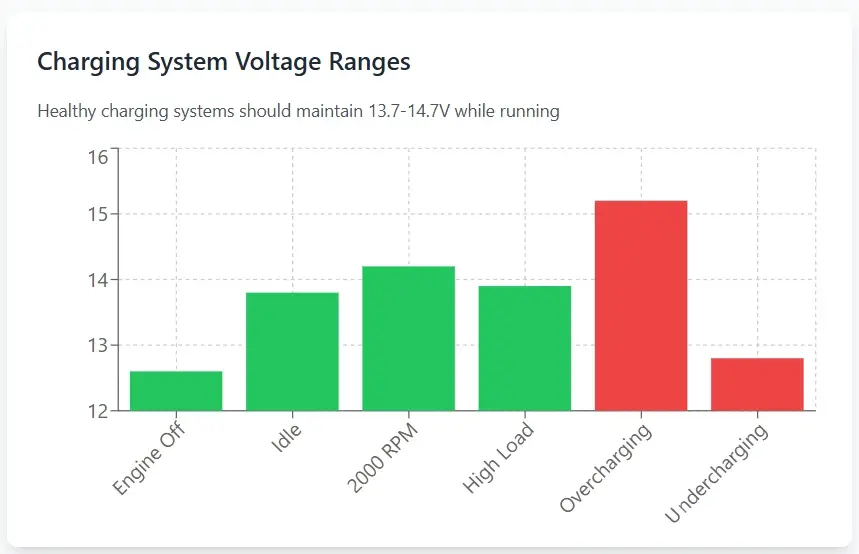
Advanced Diagnostic Techniques
When basic troubleshooting doesn’t solve your car battery dying overnight problem, it’s time to dig deeper with advanced diagnostic techniques. Professional-grade multimeters can measure parasitic draw with precision, helping you identify specific circuits causing excessive drain.
The key to successful parasitic draw testing is patience and a systematic approach. Start by measuring total system draw, then systematically remove fuses one at a time to isolate the problematic circuit. This process can take time, but it’s the most reliable way to identify hidden electrical gremlins contributing to a car battery dying overnight.
Load testing is another crucial diagnostic tool. A proper load test simulates the electrical demands of starting your engine and can reveal battery weaknesses that voltage testing might miss. Professional load testers apply a controlled load while monitoring voltage drop, providing insight into your battery’s true condition.
Don’t forget about temperature compensation when testing. Battery voltage naturally varies with temperature, and accurate testing requires adjusting readings based on ambient conditions. Many modern battery testers include automatic temperature compensation features.
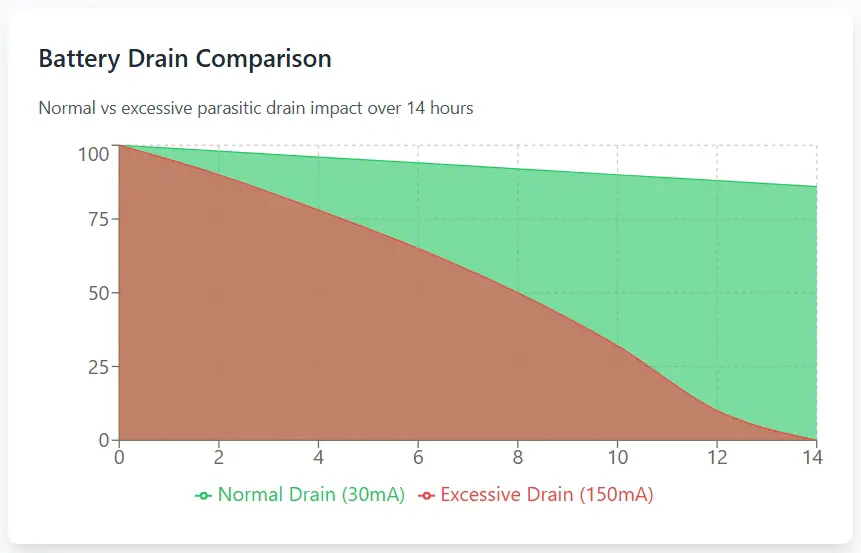
Prevention Strategies That Actually Work
Prevention truly is better than cure when it comes to avoiding car battery dying overnight situations. The most effective prevention strategy combines regular maintenance with smart driving habits and environmental awareness.
Monthly Maintenance Routine
Start with a monthly visual inspection routine. Check for obvious signs of corrosion, case damage, or loose connections. Look for any signs of fluid leakage, which could indicate internal damage or overcharging issues. These monthly checks take less than five minutes but can prevent major problems.
Pay attention to your battery’s physical condition. Cracks in the case, bulging sides, or excessive corrosion around terminals are red flags that warrant immediate attention. Don’t ignore these warning signs – they often precede complete battery failure.
Temperature Management Strategies
Temperature management plays a crucial role in battery longevity. If possible, park in a garage during extreme weather conditions. For vehicles that must be parked outside, consider using a battery blanket in winter or parking in shaded areas during summer months.
Extreme heat is actually more damaging to batteries than cold weather. While cold reduces capacity temporarily, heat accelerates chemical reactions that permanently damage battery components. This is why car battery dying overnight problems often start during hot summer months but become noticeable when temperatures drop.
Smart Driving Habits
Your driving patterns significantly impact battery health. Short trips that don’t allow your alternator sufficient time to fully recharge your battery can lead to chronic undercharging. If you frequently take short trips, consider taking your vehicle on longer drives periodically to ensure full battery charging.
Highway driving is particularly beneficial for battery health because it allows your alternator to operate at optimal efficiency for extended periods. Try to take at least one 20-30 minute highway drive weekly if your typical driving consists of short city trips.
Busting Common Car Battery Myths
Don’t let these widespread misconceptions leave you stranded! Here are the most persistent myths about car batteries dying overnight, along with the real facts every driver should know.
Myth 1: “You Can Tell Battery Health Just by Looking at It”
The Reality: While obvious signs like corrosion, cracks, or bulging indicate problems, many failing batteries look perfectly normal on the outside. Internal cell damage, sulfation, and capacity loss often occur without visible symptoms. A three-year-old battery might appear pristine but only deliver 60% of its original capacity. Always test your battery’s actual performance rather than relying on visual inspection alone.
Myth 2: “Disconnecting the Battery Prevents All Overnight Drain”
The Reality: Disconnecting your battery will indeed prevent drain, but it’s not a practical long-term solution. You’ll lose radio presets, clock settings, and security system programming every time. More importantly, constantly disconnecting and reconnecting battery cables can damage terminals and create loose connections that cause future problems. Address the root cause of excessive drain instead of using this band-aid approach.
Myth 3: “New Batteries Never Die Overnight”
The Reality: Brand new batteries can absolutely die overnight if there’s a significant electrical drain in your system. A parasitic draw of just 200 milliamps can completely drain even a new battery in 10-15 hours. The battery’s age isn’t the issue – it’s the excessive power consumption. New batteries can also have manufacturing defects that cause premature failure.
Myth 4: “Revving the Engine Charges the Battery Faster”
The Reality: While higher RPMs do increase alternator output, simply revving your engine while parked provides minimal charging benefit. Your alternator needs sustained operation under load to effectively charge a depleted battery. A 10-minute drive at steady highway speeds will charge your battery more effectively than 30 minutes of engine revving in your driveway.
Myth 5: “Extreme Cold is the Only Weather That Kills Batteries”
The Reality: Hot weather is actually more damaging to battery longevity than cold weather. While freezing temperatures reduce available capacity temporarily, excessive heat accelerates chemical reactions that permanently damage battery components. Batteries in consistently hot climates typically last 2-3 years, while those in moderate climates can last 4-5 years.
Myth 6: “Jump Starting Always Fixes a Dead Battery”
The Reality: Jump starting gets your engine running, but it doesn’t fix the underlying problem causing your battery to die overnight. If you’re frequently jump starting your vehicle, you’re dealing with a chronic issue that needs proper diagnosis. Repeated deep discharges from overnight drain actually shorten battery life significantly.
Myth 7: “Aftermarket Accessories Don’t Affect Battery Life”
The Reality: Improperly installed aftermarket accessories are one of the leading causes of overnight battery drain. Sound systems, alarms, remote starters, and LED lighting kits can all create parasitic draws if not wired correctly. Even “professional” installations can have issues if installers don’t follow proper electrical practices.
FAQ: Car Battery Dying Overnight
-
How long should a healthy car battery last without driving?
A healthy battery in a properly functioning vehicle should maintain starting power for 2–4 weeks without driving, depending on temperature and electrical loads. If you’re experiencing a car battery dying overnight, that’s not normal — it’s a clear sign of an underlying issue.
-
What’s the difference between a weak battery and a dead battery?
A weak battery has some charge but insufficient power to start your engine – you might hear clicking sounds or slow cranking. A completely dead battery shows no signs of life when you turn the key. Both situations can result from a car battery dying overnight, but the severity indicates how much power was lost.
-
Can I prevent my battery from dying overnight without expensive repairs?
Basic preventive measures include cleaning battery terminals monthly, ensuring connections are tight, parking in moderate temperatures when possible, and avoiding short trips that don’t allow full battery charging. However, if you’re dealing with a car battery dying overnight, parasitic drain or charging system issues are likely, and professional diagnosis becomes necessary.
-
How do I know if my alternator is causing overnight battery drain?
Test your charging system voltage with a multimeter. With the engine running, voltage should read 13.7–14.7 volts at the battery terminals. If it’s lower, your alternator isn’t charging properly. If it’s higher, your voltage regulator may be overcharging — either issue can contribute to a car battery dying overnight.
-
What’s considered normal vs. excessive parasitic drain?
Normal parasitic draw ranges from 20–50 milliamps for most vehicles. Anything above 50 milliamps after your car has been sitting for an hour indicates excessive drain, and this could explain a car battery dying overnight in many cases.
-
How can I test for parasitic drain without professional equipment?
While a digital multimeter is the most accurate method, you can perform a basic test by disconnecting your battery’s negative terminal and touching it back to the post. If you see a small spark, there’s current flow. A large spark indicates significant drain. This DIY approach can help determine if you’re at risk of a car battery dying overnight.
-
At what temperature do batteries start having problems?
Battery capacity begins decreasing noticeably below 32°F (0°C). At 0°F (−18°C), a battery delivers only about 40% of its rated capacity. However, hot weather above 90°F (32°C) accelerates internal damage and shortens overall battery life — another factor behind a car battery dying overnight in extreme conditions.
-
Should I use a battery tender if I don’t drive daily?
Battery tenders are excellent for vehicles that sit for extended periods. They maintain optimal charge levels without overcharging. If you’re trying to prevent your car battery dying overnight, especially in colder months or infrequent driving, a tender is a smart investment.
-
Does humidity affect battery performance?
igh humidity can accelerate corrosion around battery terminals and connections, leading to poor electrical contact and increased resistance. While humidity doesn’t directly cause a car battery dying overnight, it can worsen electrical problems that eventually lead to it.
-
How much does it cost to fix parasitic drain problems?
Diagnostic costs typically range from $100–$200 for professional parasitic drain testing. Repair costs vary widely depending on the cause. Whether it’s a $50 switch or a $500 electrical fault, addressing the root cause is the only real fix for a car battery dying overnight.
-
When should I replace my battery vs. trying to fix charging issues?
If your battery is over 3 years old and showing signs of capacity loss, replacement is often more cost-effective than extensive electrical repairs. However, if you’re still facing a car battery dying overnight, even with a newer battery, then focus on diagnosing the actual electrical drain.
-
Can I upgrade to a higher-capacity battery to solve overnight drain?
A larger battery will provide more reserve capacity, potentially masking minor drain issues temporarily. But this won’t solve the underlying cause of a car battery dying overnight. Instead of upgrading blindly, investigate what’s pulling power while the vehicle is off.
-
How long do I need to drive after jump starting to recharge my battery?
Plan on at least 30 minutes of highway driving to begin recharging a deeply discharged battery. But remember: a car battery dying overnight may not fully recharge through driving alone — especially if parasitic drain is involved.
-
Is it safe to drive with a battery that keeps dying overnight?
While you might make short trips, it’s risky to rely on a vehicle with a car battery dying overnight. The alternator compensates for the battery, increasing wear and risking failure. Worse, total battery failure could disable safety-critical systems mid-drive.

Final Thoughts: Your Battery Doesn’t Have to Be Your Enemy
Look, I get it. Nothing’s more frustrating than your car battery dying overnight when you need to get somewhere important. I’ve been stranded in more parking lots than I care to admit, and it never gets less annoying.
But here’s what I’ve learned after years of dealing with this problem: car battery dying overnight isn’t some mysterious curse. It’s usually one of the seven issues we’ve covered, and it’s completely preventable once you know what to look for.
Need a mobile mechanic? Find one on the Mobile Mechanic Directory
The Real Game-Changer
The biggest revelation for me was understanding that most car battery dying overnight situations aren’t actually battery problems – they’re electrical system problems. I used to think a dead battery meant I needed a new battery. Wrong. I went through three batteries in two years before discovering a faulty dome light switch was the real culprit. A $15 part was killing $150 batteries.
That’s why I always tell people: don’t just throw parts at the problem. Get it diagnosed properly. Yeah, it might cost you $100-150 upfront, but it’ll save you hundreds in the long run.
My Personal Strategy
I’ve developed a simple monthly routine that’s prevented car battery dying overnight issues for three years running. I spend five minutes checking battery terminals for corrosion and ensuring connections are tight. I also invested in a basic $20 multimeter to test battery voltage and check for parasitic drain.
Here’s a tip that’s saved me countless times: if you’re driving mostly short trips, take your car on a longer drive once a week. Just 20-30 minutes of highway driving gives your alternator time to fully charge your battery.
When to Get Help
I’m all for DIY solutions, but I’ve learned when to call professionals. If you’ve cleaned terminals, checked connections, and you’re still experiencing car battery dying overnight, it’s time for proper diagnostics. Don’t spend weekends chasing electrical gremlins like I did.
The Bottom Line
Your car battery dying overnight doesn’t have to be a recurring nightmare. Most of the time, it’s telling you something specific about your electrical system. Once you fix the root cause, the problem goes away for good.
I’ve gone from keeping jumper cables permanently attached to not having an unexpected dead battery in over three years. The difference? I stopped treating symptoms and started addressing causes.
So next time you face this frustrating situation, use it as an opportunity to understand your car’s electrical system. You’ve got the knowledge now – time to put it to work!
Stay charged out there!

